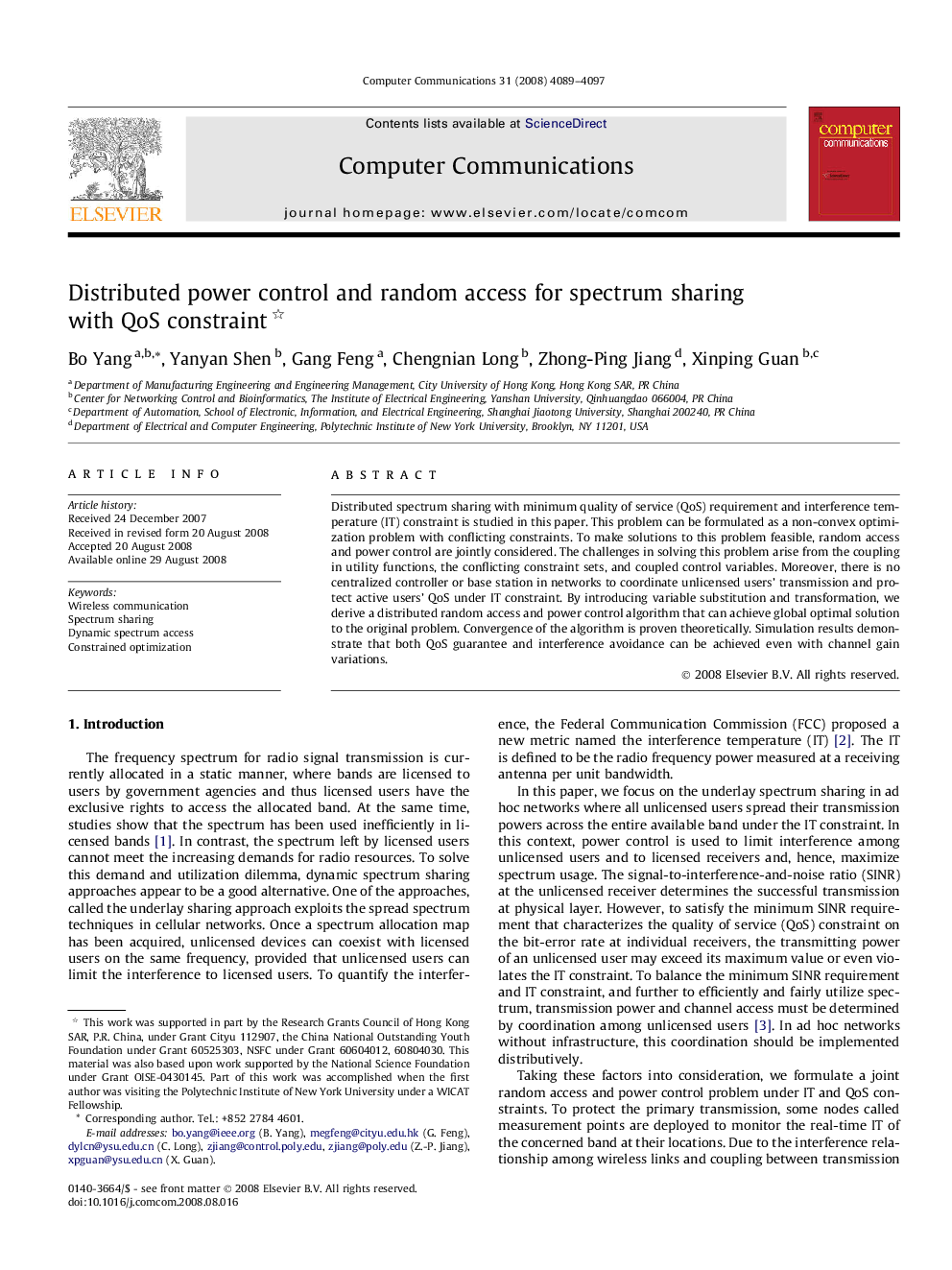| Article ID | Journal | Published Year | Pages | File Type |
|---|---|---|---|---|
| 449424 | Computer Communications | 2008 | 9 Pages |
Distributed spectrum sharing with minimum quality of service (QoS) requirement and interference temperature (IT) constraint is studied in this paper. This problem can be formulated as a non-convex optimization problem with conflicting constraints. To make solutions to this problem feasible, random access and power control are jointly considered. The challenges in solving this problem arise from the coupling in utility functions, the conflicting constraint sets, and coupled control variables. Moreover, there is no centralized controller or base station in networks to coordinate unlicensed users’ transmission and protect active users’ QoS under IT constraint. By introducing variable substitution and transformation, we derive a distributed random access and power control algorithm that can achieve global optimal solution to the original problem. Convergence of the algorithm is proven theoretically. Simulation results demonstrate that both QoS guarantee and interference avoidance can be achieved even with channel gain variations.
